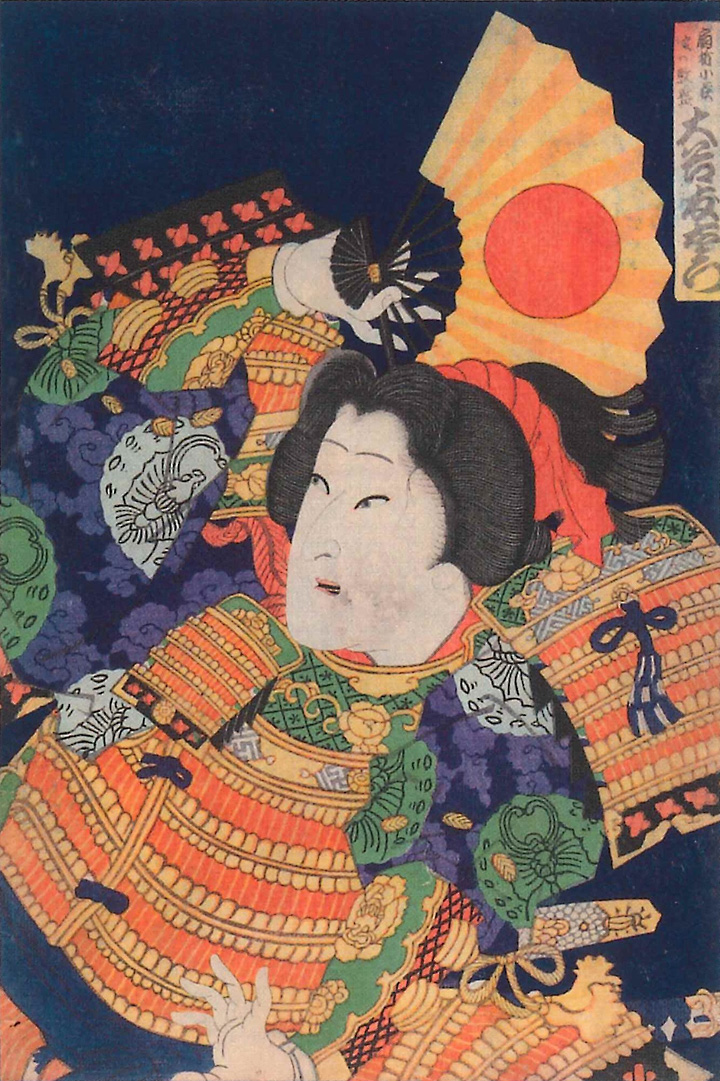On June 17th, foreign students from Kokugakuin University visited Kokuritsu Gekijou(国立劇場), a traditional kabuki theater. Kabuki(歌舞伎) is a traditional Japanese form of theater with roots tracing back to the Edo Period.

源平魁躑躅 Genpei Sakigake tsutsuji 豊原国周画(private collection)
Q.Why and for what purpose do some in a kabuki audience shout toward the stage?
A.’Omuko’ shouts indispensable to liven up kabuki plays
During a kabuki performance, some members of the audience shout, for instance, “Narita-ya!” when an actor appears on the stage or the act reaches its “miseba” climax. What they call out toward the stage is “yago,” or the guild name of each acting family. Kabuki fans are familiar with yago, which differs from family to family, as yago names are often inscribed on props and stage costumes.
Each yago name is thought to have a meaning unique to it or derived from a special event of the past. For example, the first Ichikawa Danjuro is a stage name inherited by a series of kabuki actors of the Ichikawa family who have used the yago of “Narita-ya” generation after generation because Ichikawa Danjuro I is believed to have become a popular kabuki actor thanks to his devotion to Naritasan Shinshoji Temple in Narita.
The voices you hear during each kabuki act are shouts usually given by specialists known as “omuko,” because yelling toward the stage is a difficult art, requiring them to choose the best “maai” or intervals for timely shouts, while knowing each actor’s performances and their breathing patterns in full detail. So, enjoy omuko shouts as part of the thrill of the kabuki experience.

published in The Japan News on 20/9/2016
Murasaki FUJISAWA
Research
History of Japanese art, History of early-modern Japanese culture, Comparative Studies in Art
Papers
Yamato-e and the Reception of Rinpa in Ukiyo-e; Moronobu,Harunobu,and Hokusai(2014/05/30)
Discussion Hall : Ukiyoe : Over the Seas, and Over Time(2019/09/)

